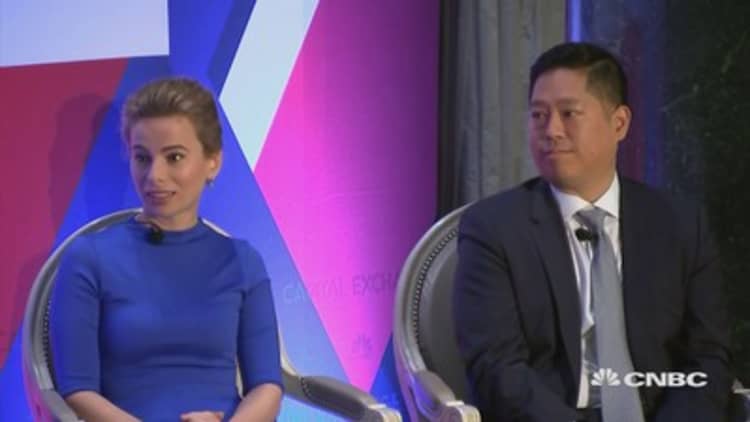With the unemployment rate at a low 3.7% and the skills shortage severe, corporations need to get creative about finding talented job candidates. IBM is among the technology giants testing new methods involving artificial intelligence to overcome the labor market challenges.
AI has been applied to the job application process directly as a method to prevent human bias in hiring decisions. Now more companies are using AI assessment tools to reverse-engineer job roles and find candidates often overlooked by recruiters.
IBM introduced its SkillsBuild platform in France in May 2019 with the goal of identifying job skills and employment opportunities for members of disadvantaged communities. It will be rolled out in Germany in the coming months, followed by India, and then IBM plans to bring the platform to the U.S. in 2020, by which time it is likely that the program will have thousands of users, the company says.
The IBM initiative provides jobseekers, including those with long-term unemployment, refugees, asylum seekers and veterans, with career fit assessments, training, personalized coaching and learning needed to reenter the workforce. SkillsBuild has partnered with several NGO partners and nonprofits to form, in IBM's words, "a new, sustainable hiring mindset," but it is not currently used as part of the application process for IBM jobs, specifically.
Reskilling workers
Grace Suh, vice president of education for IBM Citizenship, said the platform is meant to be an upskilling tool.
"[Applicants] come from vulnerable populations, and they're looking to move into competitive New Collar roles," Suh said, referring to the term used by IBM CEO Ginni Rometty to refer to the need to transition the traditional blue-collar workforce to jobs in a tech-led economy. The IBM CEO has said AI will change "100% of jobs" over the next decade.
"These roles include web development, customer service, eventually even cybersecurity. This is about reskilling, upskilling," Suh told CNBC.
"I think what AI is helping us do is uncover things that you wouldn't have otherwise seen," said Jacob Hsu, CEO of workforce data science company Catalyte, at CNBC's Capital Exchange Summit in Washington, D.C. on Thursday. "Our company is built on the premise that talent and ability are evenly distributed, even if opportunity hasn't been.
"We're using AI to identify exceptional people from all walks of life that have remarkable ability to actually be very rapidly retrained to not just be good engineers but the very highest-performing, most successful engineers in the industry. So we're literally hiring truck drivers and teachers, retail workers and fast-food workers ... and very rapidly, within 20 weeks, getting them through a computer science degree and getting them into not just actual jobs but proving they can be highest performers in those roles."
We believe ultimately everyone is a superhero; we just have to help them uncover what their superpower is.Jacob HsuCEO of workforce data science company Catalyte
Hsu said they are distinct from the focus on whether AI will replace humans.
"There's this really unique spot where we're at where AI and technology can really help advance what companies are looking for," said Irina Novoselsky, CareerBuilder CEO. "There's things that we did 10, 20, 30 years ago that we no longer need to do that there's definitely technology that's going to take over. But if you think about the dynamics of where we are today and there's not enough supply to even fill current demand, there's only two places that this can come from."
Upskilling workers is needed for critical social reasons, namely to reverse the hollowing out of the middle class, she said, but there will be jobs that there aren't really any candidates available to fill. "What's important is how do we reskill the population that we have to fill the jobs we have, and how do we embrace technology where it's needed," Novoselsky said.
Hiring below the college degree
Within the IBM Skillsbuild platform are AI tools like MyInnerGenius, created by San Diego area-based GreatBizTools, which designs AI products to find talent in nontraditional ways.
MyInnerGenius is helping fill entry-level and mid-level IT roles for IBM's New Collar program in the U.S. and SkillsBuild program in Europe. Many of these roles are being filled by applicants with no prior experience in technology, many of whom don't have college degrees.
"There are currently more than 500,000 IT job openings, and colleges are only producing around 50,000 people with degrees in IT per year," said Denise Leaser, president of GreatBizTools. The skills shortage has made it more necessary than ever for companies like IBM to look outside of their usual applicant pool. "IBM wants to open up IT to more people, especially people who may have never thought of or considered an IT role before."
For more on tech, transformation and the future of work, join CNBC at the @ Work: People + Machines Summit in San Francisco on Nov. 4. Leaders from Dropbox, SAS, McKinsey and more will teach us how to balance the needs of today with the possibilities of tomorrow, and the winning strategies to compete.
While she would not disclose too many details about how MyInnerGenius works, she said that it isolates a candidate's personal traits to find jobs that would be a good match.
The assessments screen for cognitive abilities, skills, detail orientation, problem solving and deductive reasoning, as well as personality traits like empathy, risk aversion, leadership, and problem solving, Leaser said. "It takes a full assessment of the individual's cognitive abilities, and creates a comprehensive competency profile that's unique to them, then uses algorithms that match them to jobs that require different competencies."
AI limitations
AI's role continues to expand in human resources settings. IBM is among companies already using AI to predict which current employees will quit and while other efforts underway are designed to attract applicants with the desired skill sets.
The state of California recently passed a resolution encouraging the development of AI tools to reduce bias in the hiring process, but hiring AI also has raised concerns within the data analytics community about the potential for new forms of algorithmic bias, as well as general concerns among human resources professionals.
Krishna Powell, CEO of the HR 4 Your Small Biz human resources consulting firm, said AI is only as good as the person who writes the algorithm, and it's missing the gut feelings and strong hunches that can sometimes lead to a great hire or prevent a bad one. She added that AI screening systems could also be gamed by any candidate who's prepared for it and knows how to respond to specific questions to gain a desired result.
"You can have a job candidate who knows what to say and do to successfully pass any AI tests or tools for job placement, but when hired the leader discovers this person does not match up to who he or she appeared to be through the AI tool," she said.
Andrei Baloleanu, Growth Manager at the 123 Form Builder data management company, said companies adopting any sort of AI should phase it in slowly, and be prepared to see mistakes along the way.
"Artificial intelligence in itself is still in its infancy, meaning that, at this point, most of the AI systems, in all industries, are still learning," he said. "This means that your HR AI might fail every now and again, as part of its own learning process."
Despite being a big booster for GreatBizTools, Leaser shared the same concerns as others in the HR field. "AI can add efficiencies, but it should not replace the human factor," she said.
Leaser said that no matter how a great an AI tool your company has at its disposal, human input remains essential to business hiring, training and up-skilling practices, and should never be sidelined in favor of technology.
"We believe ultimately everyone is a superhero; we just have to help them uncover what their superpower is," Catalyte CEO Hsu said.






